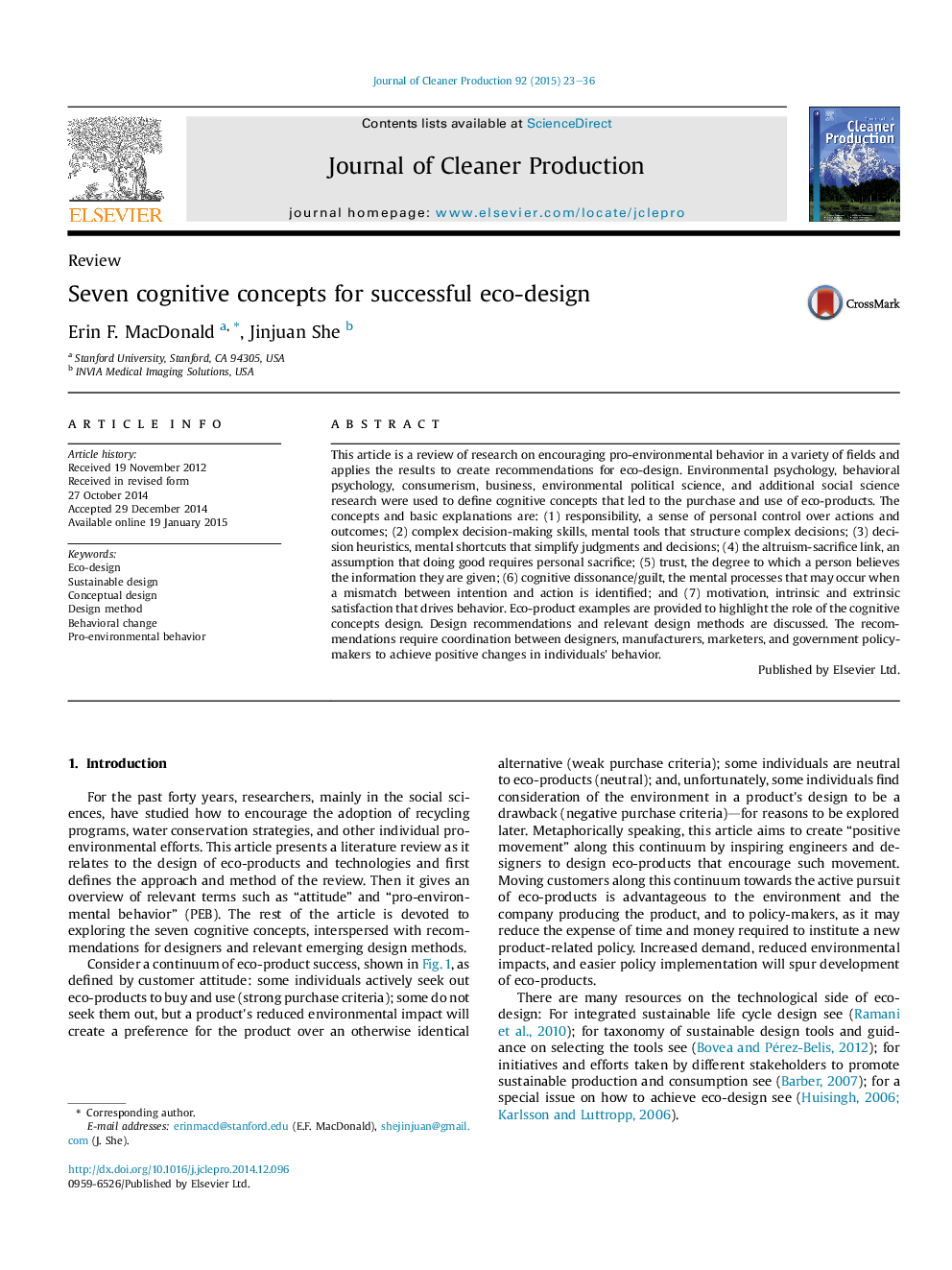| Article ID | Journal | Published Year | Pages | File Type |
|---|---|---|---|---|
| 1744617 | Journal of Cleaner Production | 2015 | 14 Pages |
This article is a review of research on encouraging pro-environmental behavior in a variety of fields and applies the results to create recommendations for eco-design. Environmental psychology, behavioral psychology, consumerism, business, environmental political science, and additional social science research were used to define cognitive concepts that led to the purchase and use of eco-products. The concepts and basic explanations are: (1) responsibility, a sense of personal control over actions and outcomes; (2) complex decision-making skills, mental tools that structure complex decisions; (3) decision heuristics, mental shortcuts that simplify judgments and decisions; (4) the altruism-sacrifice link, an assumption that doing good requires personal sacrifice; (5) trust, the degree to which a person believes the information they are given; (6) cognitive dissonance/guilt, the mental processes that may occur when a mismatch between intention and action is identified; and (7) motivation, intrinsic and extrinsic satisfaction that drives behavior. Eco-product examples are provided to highlight the role of the cognitive concepts design. Design recommendations and relevant design methods are discussed. The recommendations require coordination between designers, manufacturers, marketers, and government policy-makers to achieve positive changes in individuals' behavior.
